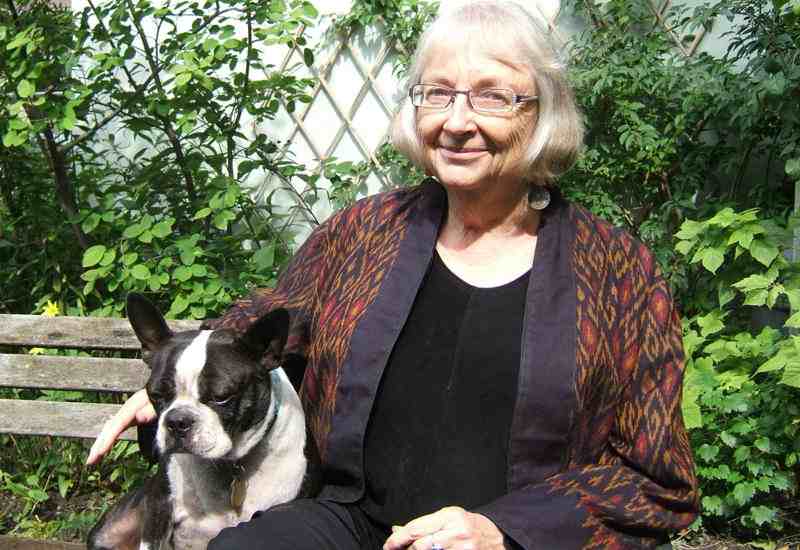
Celia Lottridge describes herself as a "loyal Seaton Village resident." Courtesy Fitzhenry and Whiteside
By Eddie Mumford
“Even though my neighbourhood has changed drastically, it still basically looks the same … so I thought it would be fun to think about what it was like in another time,” says storyteller group founder and writer Celia Lottridge, on why she set her new childrens’ book The Listening Tree in Seaton Village.
The Listening Tree features a young girl named Ellen Jackson, who, with her mother, is forced to re-locate to her aunt’s boarding house on Manning Avenue, after leaving their farm when their hometown is emptied by drought.
“I saw it as a time when life was full of practical problems—the majority of people were having to cope with the day-to-day of getting money … the Depression had a huge impact here in Canada, but I don’t think a lot of children or adults have any idea of how extremely hard it was. We like to forget about hard times,” she said.
This book creates a fictional yet realistic Toronto for children to learn from. “How can you learn about your country if you don’t have any fiction to read?” she said. “That’s what got me into writing, [the idea] that these books needed to be written.”
When asked if the character of Ellen was at all autobiographical, Lottridge said “Yes, in the sense that when I was a child my father changed jobs several times, so at least five times before I was 12 I had moved, [however], I’d say [Ellen’s] kind of extreme on the shy side.”
Lottridge has never left the greater Annex area since she moved to Toronto in 1975 and describes herself as a “loyal Seaton Village citizen.”
Ms. Lottridge is one of the founders of (and is now a trainer and consultant for) The Parent-Child Mother Goose Program (720 Bathurst St.), which began in 1986 as a not-for-profit organization that uses storytelling as a way to help nurture the bond between caregiver and child. “We still use the same pattern of how the program works—we still use the same training manual we wrote in 1989,” explained Lottridge, “As neighbourhoods changed and new groups moved in, we’ve learned how to incorporate material from different languages, and how to make people feel comfortable and part of a group.”
“Children who experience stories have a more complete experience of language, they learn about the emotional content, and they also learn that the stories have patterns. Even for small children, it’s like they tune into it, even though they don’t exactly understand the words.”
The Mother Goose Program is completely sound oriented, with no toys or other visual distractions involved. “We want the whole emphasis of it to be on activities the adult and the child can do together, so we don’t want another element there that is distracting,” said Lottridge, “we want the parents to be encouraged that they have within themselves the resources to make their child comfortable—that they don’t always have to have things.”
“Many, many people have a memory of their parent saying a rhyme to them or telling them a story… and when people have that memory it’s always a happy one.”
The program focuses on smaller groups of caregivers and children, rather than large assemblies, “We want to create groups where people feel comfortable and they know each other. It gives us time to help people relax.”
Likewise, cooperation plays a vital role in The Listening Tree, whose characters learn the value of community during hard-times, and its ability to affect positive change. The book itself is written for grade school audiences, whose Torontonian readers will get a chance to read about familiar landmarks like Casa Loma, which for a time was owned by the city and loosely guarded against neighbourhood kids playing hide-and-seek.
“As a story teller I tell lots of stories that are more fantasy-type, but when I write, I seem to be drawn to writing about young life the way it is, and also how all the different people you meet can make such a difference in your life.”
The Listening Tree is out in select bookstores this month. For more information on the Parent Child Mother Goose program visit http://www.nald.ca/mothergooseprogram or call (416) 588-5234.

![Listening Tree [low]](http://gleanernews.ca/wp-content/uploads/2011/01/Listening-Tree-low.jpg)